WA Wheatbelt & Goldfields Tour - 2016 - 2017
With a cold wind and a forecast of rain, we headed out of Perth along the great eastern highway to Toodyay. I have yet to understand how this highway can be called "Great" as opposed to super, or cool, but Tracy assured me it was the WA way, just like everything in Texas is big.
The road to Toodyay is well known to us and so we did not stop till we
Tracy McPhee
13 chapters
15 Apr 2020
The Gold fields Perth to Mt Magnet
September 25, 2017
With a cold wind and a forecast of rain, we headed out of Perth along the great eastern highway to Toodyay. I have yet to understand how this highway can be called "Great" as opposed to super, or cool, but Tracy assured me it was the WA way, just like everything in Texas is big.
The road to Toodyay is well known to us and so we did not stop till we
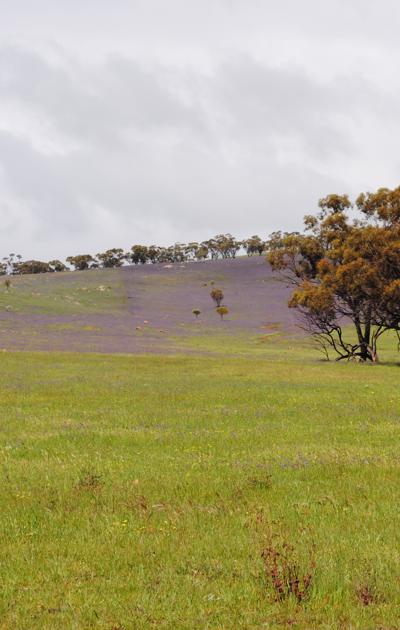
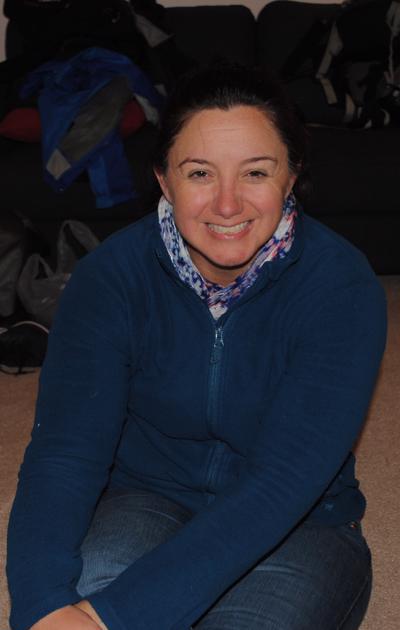
got to Tooyay where we loaded up on fresh bread and toppings and of course the most important item - a jammy donut for Joe. The driver needs constant food suppliers or he is inclined to get cranky.
From Toodyay we headed on a new route northeast via long forrest road to Goomailing. Its classic wheatfield country with wide open plains and few houses. The sun started to break through the clouds and the place looked amazing with cloud shadows across the corn fields. On arrival in Goomaling we have the obligatory water purchase for Tracy, and then took some pictures of the main street. Its one long street and has an IGA that supplies the basics. Its run by an Indian family which is now quite common in the outback as they are the only people prepared to go out bush and run stores. Its a recipe the Indian community has implemented to great success in Kenya, Uganda, the UK and the USA. WA is now the latest benefactor of this, as without them there would be even less shops
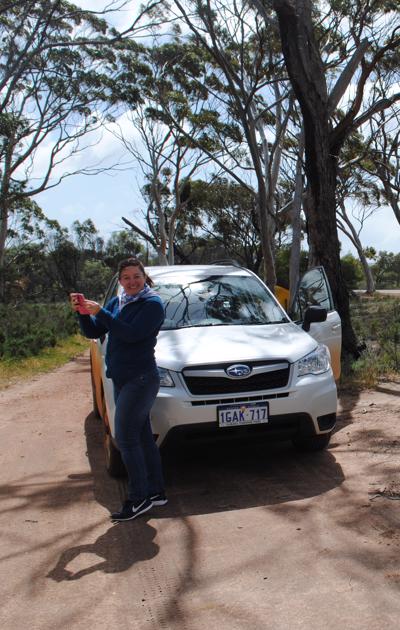
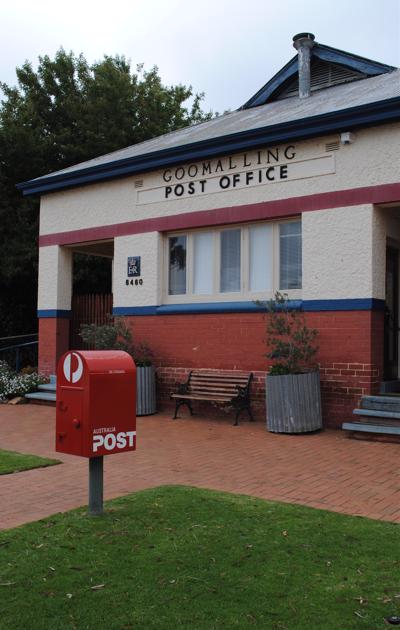
and less people and the towns would die faster. However, it does take a second or two to compute a New Delhi accent from someone in a town at the edge of the great Australian interior. How small and changed the world has become.
We needed to head north and so took the road to Wongan Hills and travelled through some areas with wild flowers, but soon realised that this would not be a great year for wild flowers. Last year the fields were covered in colour, but this year it looks a bit drab. The rains have not been kind and only in damp areas were there purples and blues and vivid yellows from daisy's, orchids etc. At Wongan Hills we had a picnic just outside town on the road to Waddington. The sun had come out and it was clear skies, although the wind was bitingly cold, it was obvious that we were leaving the cool western zone behind us.
The road to the Great Northern Highway (another great WA road!) took us via small roads like McKay, Brophy, Scotney, Jones and Roache showing that the area was settled by Irish, English and Scottish settlers. Along the way we stopped in Ballidu as they had a
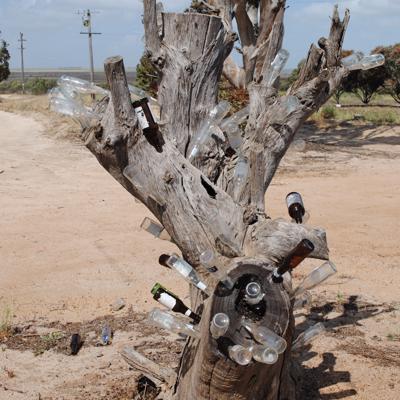
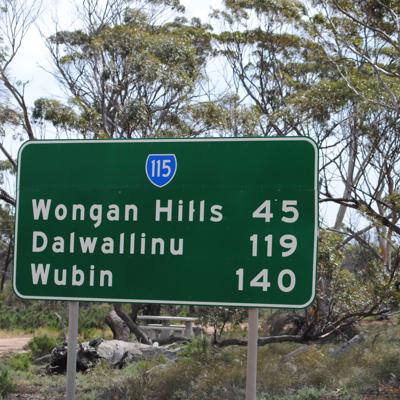
wall of old bikes that were nicely painted up. They have an annual "Bike it to Ballidu" event in March each year. The race is from Wongan Hills to Ballidu a total of 36km. Every little town seems to have a one day event or show to bring a bit of life and excitement to the town. This could be the annual toss the scarecrow competition or swim the salt lake event. Once the event is over, the town slips back into quiet slumber.
Once on the Northern Highway we pushed north and were soon in Dalwallinu. This is a small town that is the official start of the northern loop of the wild flower route.
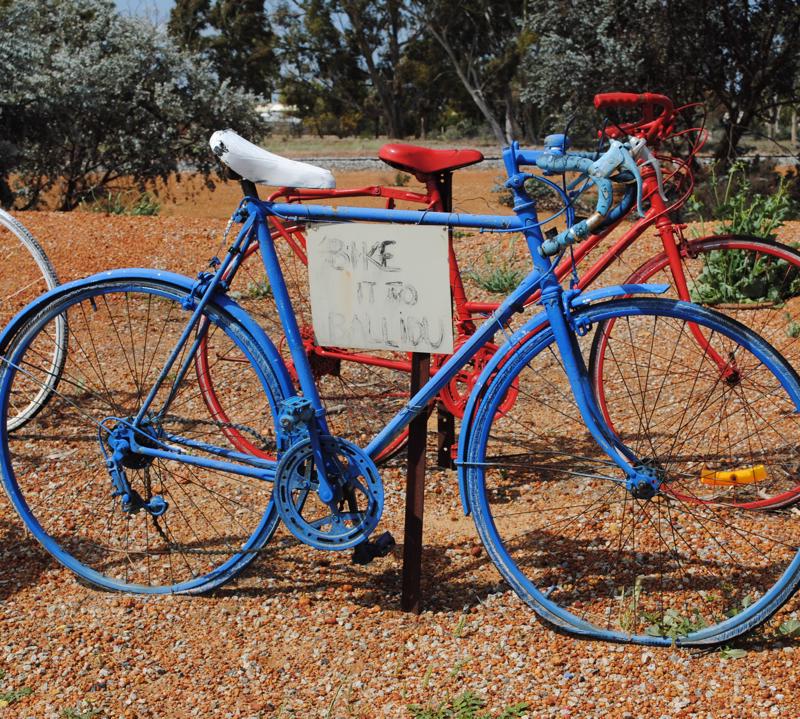
Once past Dalwallinu the sun was in full spirits and the area is clearly drier and more arid, and as we turned into Wubin the last of the wheat field towns, we could see the fields getting larger and larger, until they just abruptly stopped at the rabbit proof fence. This is the line where the wheat fields stop and the gold fields start. The rains are just too unpredictable, and while its a bit of a gamble to grow anything in this area, once past this point its a brave man that puts crops in the ground, as only two in three years do the rains come with enough vigor to ensure germination of a crop. The sides of the road rapidly become scrub and rocky outcrops. These are however vital, as in dry weather the only water you can find is in pools hidden in the rocks.
The map changes scale and now it's a matter of covering large distances between towns and road houses. We push on past "Paynes Find", an old town that is now just a fuel filling station and road house. There are signs to stations (large cattle or sheep farms for the non Aussie readers) along the way, but as you push north they get further and further apart and more isolated. The scale also starts to increase. These stations can be over 40km long just beside
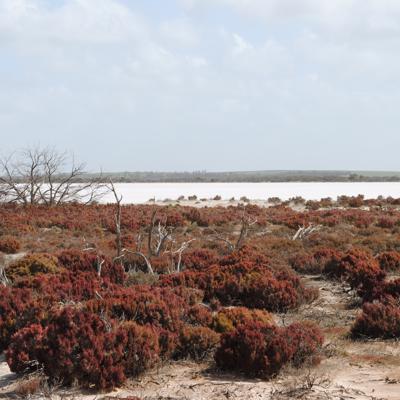
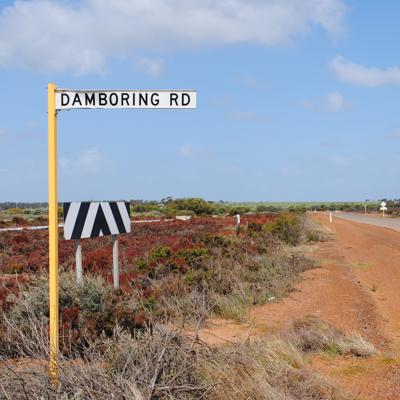
the road and then have vast hinder lands. The dry scrub is not very nutritious so the animals need to be able to graze and move along to new food shoots before the fires or heat wilt them in the hot summer sun.
Just before we reached Mt Magnet, we decided to investigate a station that seems to offer camping sites. So we turned west and down along a dirt road to Wogano station. On arrival it seemed the place was abandoned, but as we down around the back of the farm sheds there appeared an old guy and a wife of 20 years his junior, from Vietnam we guessed. They were just relaxing on a veranda and we pulled over to have a chat. It was $10 a night to camp, but Tracy deciding she liked farm animals so got out of the car to pet the local farm goat. However, her goat taming skills were clearly not a high school class she excelled in and obviously not up to scratch, and soon the goat pucked her in the leg before trying to chew her trousers. The Vietnamese woman said "Bad Goat" but Tracy did not appreciate the attention of the goat and retreated back into the car fast, leaving the goat and me to stare each other out. The Vietnamese lady kept telling me it was a "bad goat" but the goat just want someone to feed her some carrots or sweet sugar beet, two things that I unfortunately did not have to hand. So I walked past the goat with as much swagger as I could to let the goat know I was not to be
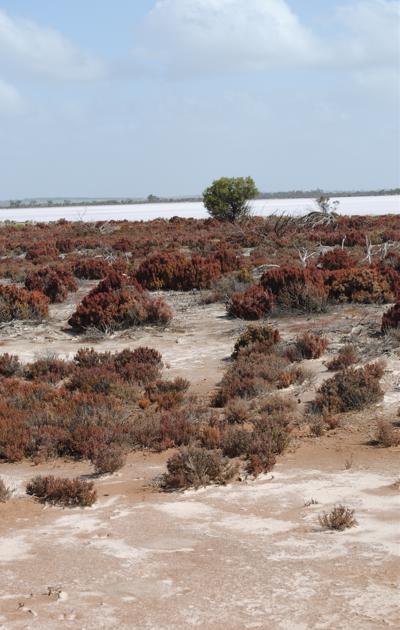
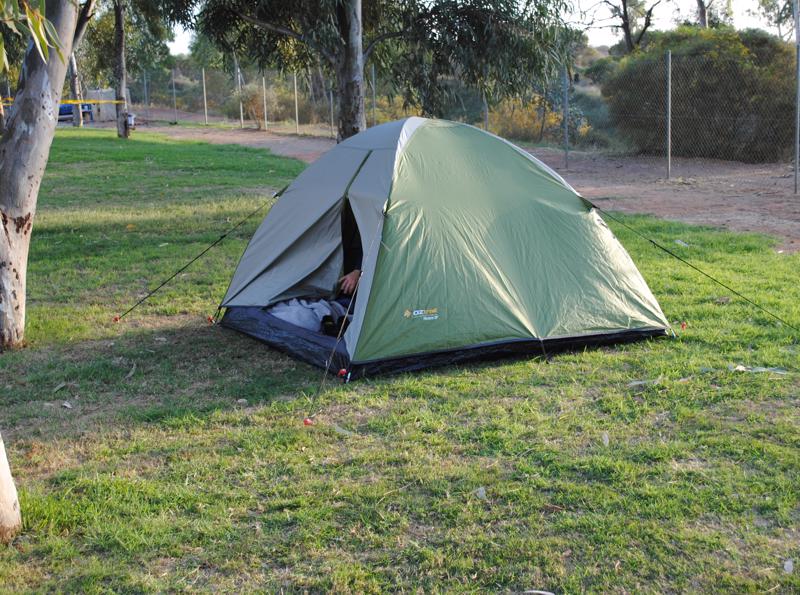
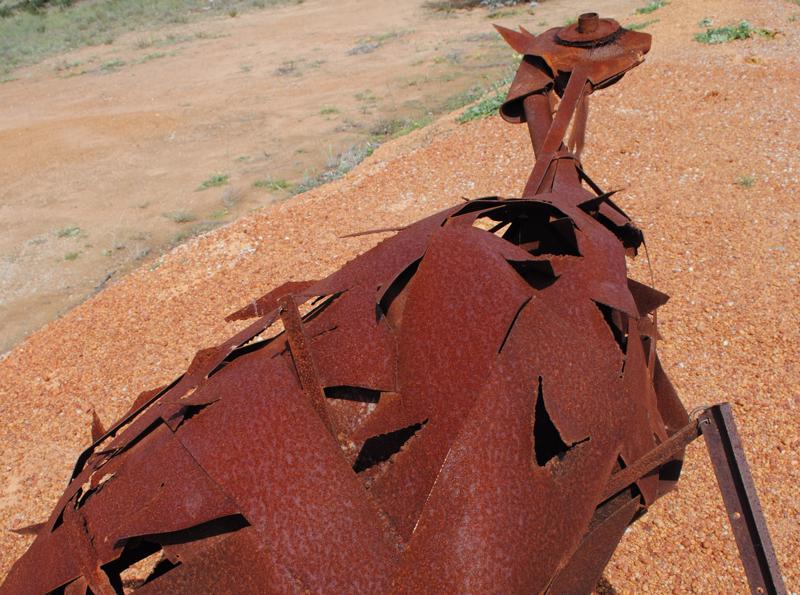
messed with. In addition, the cockerel was crowing and the place seems that bit too alternative, and so we thanked them and headed back out to the main road. The place would have been ideal if we wanted somewhere with no light pollution for looking at the stars, and solitude, as the nearest house was at least 25 kilometers away, but it lacked any amenities and wildlife could have been a problem. I am not sure if the local hospital have experts in goat puck injuries.
We got into Mt Magnet just before dusk and pitched our tent at the back of the campsite. It was a friendly place and clean and tidy. There were a lot of people coming north from Perth as it was the school holidays so was fairly full. We had a camp dinner of paste and tuna and then headed into town to have a look around.
Mt Magnet is not the greatest advertisement for the gold fields as its full of original austrialians hanging around the shops stoned on drugs or grog. The crime seems high and the police seem to be always cruising the street. The majority of houses seem to be abandoned or lived in a manner that makes them look abandoned, We decided to have a drink at the country pub as it was well run and they was no undesirables there. It was mainly full of hungry miners and a few locals.
As we sipped our drinks a woman ordered her drinks at the bar and had a strong Irish accent. I said hello and we got chatting. In short she was from Tyrone, and had come to Australia 10 years ago as a backpacker. She had taken a gig at a rural pub in Sandstone and met a miner who is now her husband and father of her four kids. She loves it here and after bringing the husband back to meet Mammy, is now enjoying her new life in the goldfields.
We got some more information on the goldfields from a local at the bar. In short, it all boils down to luck in finding a bit of gold, making a lot of money, drinking it away and then waiting for the next discovery and subsequent gold rush. The gold fortunes rise and fall, and the small towns are suddenly home to 3,000 people before the gold runs out and then a few years later are home to only 30 souls and the cycle goes on even to this day.
We headed back to the campsite along an empty street and slept well as the road trains on the highway did not make as much noise as we expected.
1.
Introduction
2.
Perth to Burra Rocks via Wyalkatchem & Kalgoorlie
3.
Burra Rocks to Dumbleyoung
4.
Dumbleyung to Quairading
5.
Quairading to Home
6.
Perth to Dalwallinu
7.
Dalwallinu to Yalgoo
8.
Yalgoo to Morowa
9.
Morawa to Perth
10.
The Gold fields Perth to Mt Magnet
11.
Mt Magnet to Leonora
12.
Leonora to Westonia
13.
Westonia to Perth
Share your travel adventures like this!
Create your own travel blog in one step
Share with friends and family to follow your journey
Easy set up, no technical knowledge needed and unlimited storage!